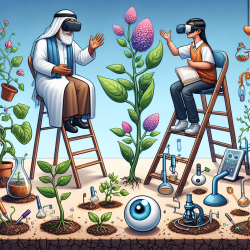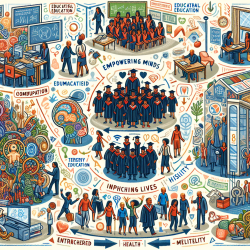Introduction
Medical Assistance in Dying (MAiD) is a deeply complex and ethically charged practice that requires a robust framework to ensure its sustainability and effectiveness. The research article "MAiD to Last: Creating a Care Ecology for Sustainable Medical Assistance in Dying Services" provides invaluable insights into how a care ecology can be implemented to support MAiD services. This blog explores the key findings of the research and offers guidance for practitioners looking to improve their skills or delve deeper into this field.
Understanding the Care Ecology Model
The concept of a care ecology is rooted in the understanding that healthcare services are not isolated practices but are part of a dynamic system of relationships and structures. This model emphasizes the interconnectedness of patients, families, healthcare providers, and organizational frameworks. By fostering these connections, a care ecology aims to create a sustainable environment where high-quality, patient-centered care can thrive.
Implementing a Care Ecology in MAiD Services
According to the research, a successful care ecology for MAiD involves several critical components:
- Interprofessional Collaboration: Bringing together diverse healthcare professionals, including physicians, nurses, social workers, and ethicists, to provide comprehensive care.
- Organizational Support: Establishing infrastructure and resources that facilitate sustainable and accountable MAiD services, such as standardized protocols and leader support.
- Community Partnerships: Collaborating with community organizations to ensure seamless transitions and support for patients across different care settings.
- Patient and Family Engagement: Educating and supporting patients and their families throughout the MAiD process, ensuring their needs and preferences are respected.
Overcoming Barriers to MAiD Practice
One of the significant challenges in MAiD practice is overcoming the barriers that deter healthcare providers from participating. The care ecology model addresses these barriers by:
- Providing Education and Training: Offering continuous professional development opportunities to enhance practitioners' skills and confidence in delivering MAiD services.
- Ensuring Legal and Ethical Compliance: Developing clear guidelines and support systems to navigate the complex legal and ethical landscape of MAiD.
- Promoting Psychological Safety: Implementing resilience resources, such as mindfulness and peer support, to help providers manage the emotional demands of MAiD practice.
Encouraging Further Research and Development
The care ecology model is a promising framework for enhancing MAiD services, but it requires ongoing research and adaptation to remain effective. Practitioners are encouraged to engage in further research to explore the model's applicability to other high-risk, trauma-exposed clinical services. By doing so, they can contribute to the development of sustainable healthcare practices that prioritize both patient and provider well-being.
To read the original research paper, please follow this link: MAiD to Last: Creating a Care Ecology for Sustainable Medical Assistance in Dying Services.










